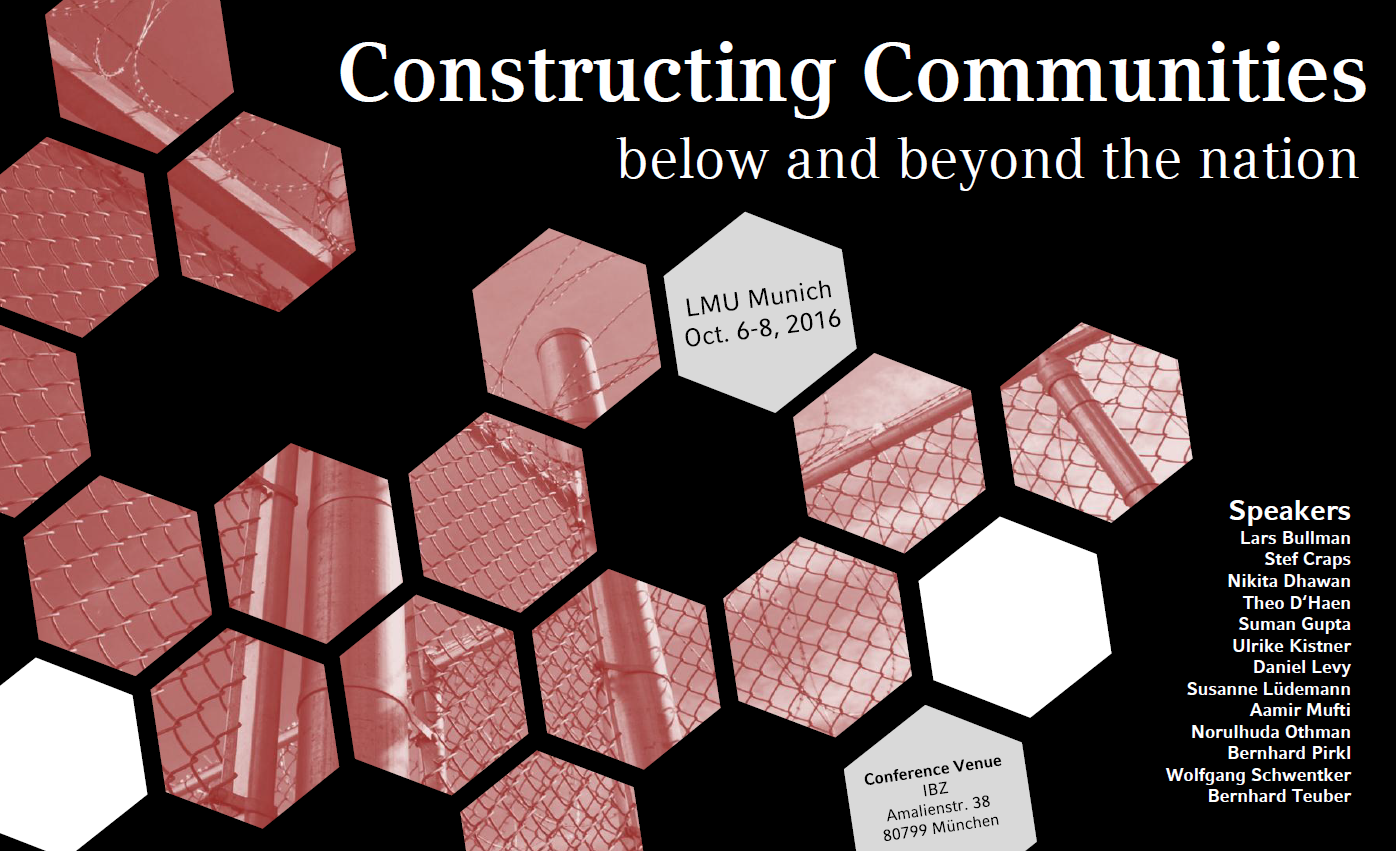Conference 2016: Constructing Communities
06.10.2016 – 08.10.2016
Conference Abstract
How do processes of globalization interact with the dynamics of community construction? In our conference, we invite speakers to engage with and reflect on this question from a variety of disciplinary perspectives, such as literary studies, political science, and sociology. We set out to examine both the transformations in existing communities and the way communities are conceptualized.
Communities and Globalization
Since globalization, the once dominant role of the nation-state has been challenged and other formations of communities have gained in importance. This does not imply that nation-states have simply disappeared, or that nation as a concept has become obsolete (e.g., Ohmae, The Borderless World). Rather, the nation and some of the elements that were constructed nationally (capital, city spaces, time structures) are reinvested with new functions, much as described in Saskia Sassen’s work on the “paradox of the national” (2008). And as Michael Keating suggested in “The Europe of Regions” (2008), transnational integration and the rise or revival of nationality demands can be understood as complementary processes. Taking the EU as an example, in some cases the nation functions as stronghold to oppose the EU (e.g. Brexit), in others the EU functions to oppose the nation by promoting (trans-)regionalism.
Beyond and below the Nation
Hence, it cannot be said that globalization necessarily leads to larger and more inclusive communities that ultimately encompass the entire globe, as is sometimes suggested. For instance, there is no evidence that globalization creates the conditions for a world state, a community form that has fascinated authors and scholars alike (for a current example see Wendt, “Why a World State is Inevitable”). Similarly, it is doubtful whether international organizations affecting all inhabitants of the globe will bring about a global community (e.g. Iriye, Global Community). With Hannah Arendt in mind, one can say that up to this day, the right to have universal human rights is still very much dependent on citizenship of a nation-state (Arendt, The Origins of Totalitarianism).
Rather than a continuation of the dominance of the nation(al), or the construction of one global community, one can observe the increased importance of communities on very different scales (cf. Balibar Equaliberty). These can be smaller than nations as well as larger (e.g. religious communities). They can be straddling borders (e.g. language communities), and they can be simultaneously intra- and trans-national (e.g. diaspora, memorial communities). Thus, it could even be suggested that the simultaneity of universalizing and particularizing tendencies described as glocality plays a role in, or even, is characteristic of the construction of communities (cf. Robertson “Glocalization”).
Imagining Communities
Finally, a crucial aspect of understanding the transformations of communities through globalization is the way in which communities are constructed or imagined–to use Benedict Anderson’s term. While Anderson singled out the novel and the newspaper as essential elements in the rise of the nation-state starting with the 18th century, both of these have today lost in influence and been replaced by other media and forms of communication. This not only raises the questions of the ways in which communities are imagined and/or constructed today, and whether literature is still relevant for these processes, but also how the role of literature and/or other media changes with regard to the processes described above. Taking the example of World Literature, Aamir Mufti recently argued that the notion of a borderless, egalitarian, global literature serves the dominance of English as a literary language by governing the mobility of various national and local literatures across the world (Mufti, Forget English).
These are only some of the issues we propose to discuss in the conference, and we invite you to engage in the discussion by proposing further questions.
top


